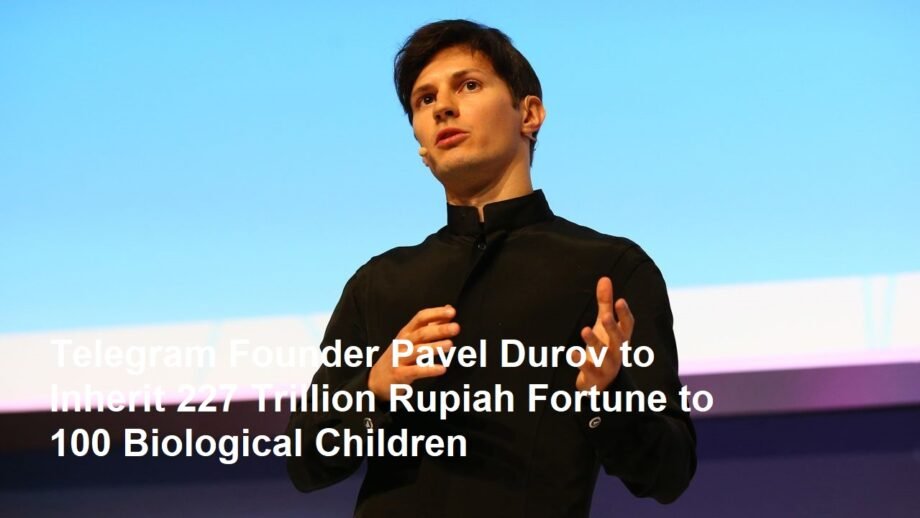Introduction
In a surprising and widely publicized development, Pavel Durov, the founder of the popular messaging app Telegram, has reportedly announced plans to bequeath a colossal fortune valued at approximately 227 trillion rupiah to his 100 biological children. This unprecedented inheritance plan has captured significant attention globally, spotlighting the billionaire entrepreneur’s vision for his legacy and the future of his family.
Pavel Durov: A Visionary Entrepreneur
Pavel Durov, best known for creating Telegram, a secure and widely used messaging platform, has been a prominent figure in the tech world for over a decade. Celebrated for his dedication to user privacy and free communication, Durov has built a massive user base and a reputation for innovation and resilience in the face of regulatory pressures.
The announcement regarding his enormous inheritance is yet another facet of his compelling life story, revealing a personal dimension behind his public persona.
The Magnitude of the Fortune
The staggering sum of 227 trillion rupiah (approximately billions of U.S. dollars) represents one of the most substantial personal fortunes earmarked for inheritance in recent global history. Such a sum highlights Durov’s extraordinary success in the tech industry and his ability to amass wealth through his ventures, including not only Telegram but also past projects like VKontakte, Russia’s leading social network.
This wealth distribution plan to 100 biological children underscores the scale of his family and the vastness of his estate, emphasizing a unique approach to legacy planning.
The Remarkable Family Dynamic
Having 100 biological children is highly unusual and adds a remarkable dimension to Pavel Durov’s personal narrative. According to the latest reports, Durov’s plan is both a legal and philanthropic milestone, designed to ensure that his descendants are well cared for and financially secure over generations.
This plan also raises questions and curiosity about family dynamics, inheritance laws, and the management of such an extensive estate among a large number of heirs.
Implications for Wealth Management and Philanthropy
Durov’s decision to distribute his wealth widely among his offspring likely involves careful strategies in wealth management, tax planning, and legal frameworks to optimize the estate’s future. Experts suggest that managing such a vast inheritance could have significant implications for estate planning practices, especially in jurisdictions where Durov’s assets are located.
Moreover, this announcement could inspire broader discussions about wealth distribution, inheritance fairness, and the responsibilities of the ultra-wealthy toward their families and society.
Conclusion
Pavel Durov’s extraordinary plan to leave a 227 trillion rupiah fortune to his 100 biological children presents a fascinating story of wealth, legacy, and family. Beyond his technological achievements, this move highlights the personal and societal aspects of legacy planning on an unprecedented scale.
As more details emerge, this story will continue to captivate public interest and potentially influence conversations on wealth management and family inheritance in the digital age.









